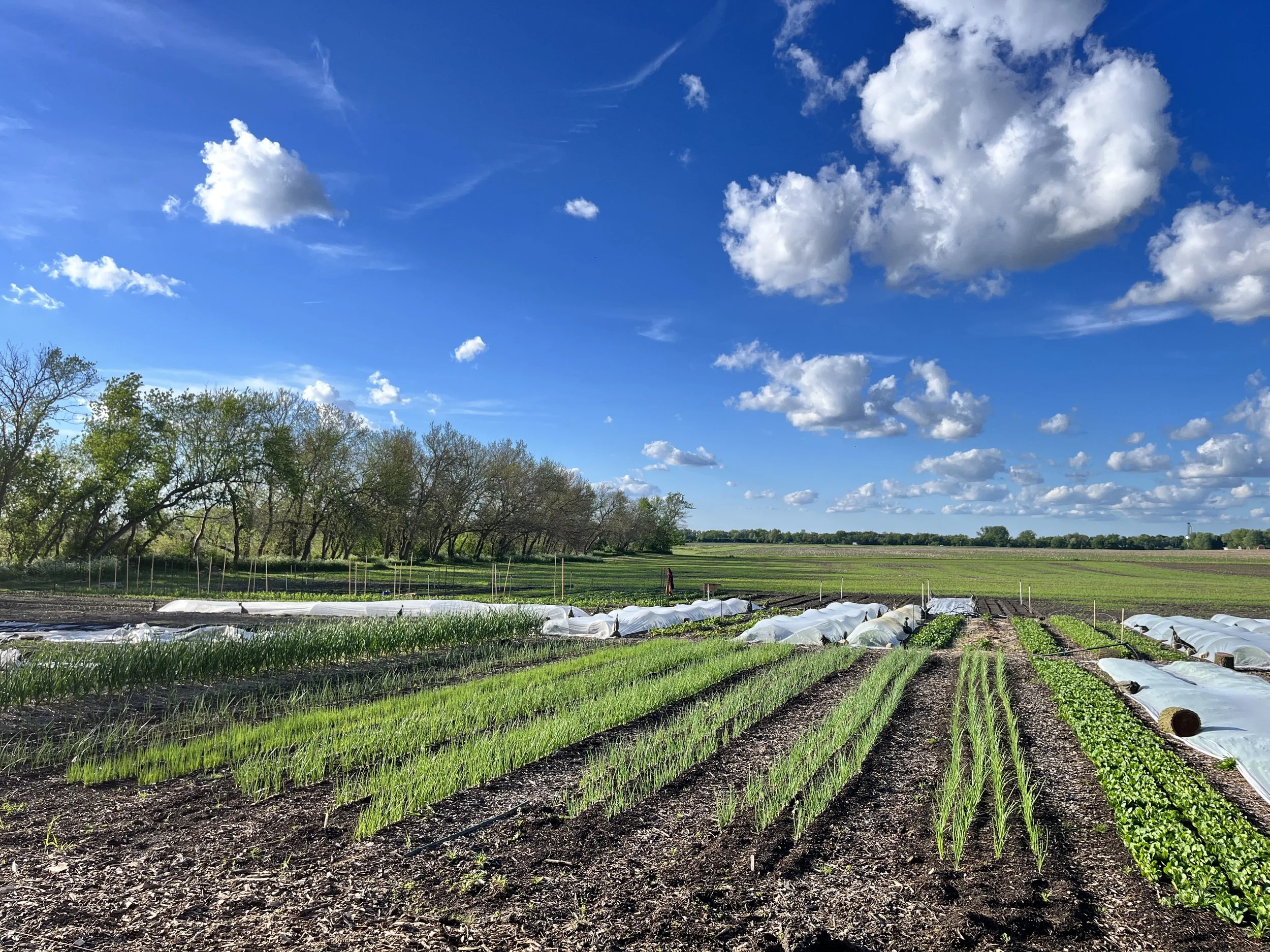Creek Side Market Garden
No-Till Market Gardening
What makes our farming practices so great!
No-till market gardening is considered extremely sustainable for several reasons, primarily related to soil health, biodiversity, and resource conservation. Here are some key aspects that contribute to its sustainability:
1. Soil Health and Structure
Soil Structure Preservation: No-till practices minimize soil disturbance, which helps maintain soil structure and prevent compaction. This allows for better water infiltration, root growth, and aeration.
Soil Microbial Activity: By not tilling, the habitat for soil microorganisms is preserved. These microorganisms play a crucial role in nutrient cycling, breaking down organic matter, and supporting plant health.
2. Erosion Control
Reduced Erosion: No-till methods reduce soil erosion by keeping soil covered with organic material, such as crop residues or cover crops. This cover protects the soil from wind and water erosion.
3. Water Conservation
Improved Water Retention: The organic matter and mulch used in no-till gardening help retain soil moisture, reducing the need for irrigation and making the system more resilient to drought.
4. Carbon Sequestration
Carbon Storage: No-till practices can help sequester carbon in the soil. By not disturbing the soil, organic matter decomposes more slowly, allowing carbon to be stored in the soil rather than released into the atmosphere.
5. Biodiversity
Enhanced Biodiversity: No-till gardening often involves diverse crop rotations and the use of cover crops. This diversity supports a wide range of beneficial insects, birds, and other organisms, creating a more balanced ecosystem.
6. Reduced Fossil Fuel Use
Less Machinery Use: Since tilling is not required, there is a reduced need for heavy machinery. This not only saves fuel but also reduces greenhouse gas emissions associated with machinery use.
7. Weed and Pest Management
Natural Weed Suppression: The use of cover crops and mulch can help suppress weeds naturally, reducing the need for herbicides.
Integrated Pest Management: A diverse planting system can reduce pest pressures and improve the effectiveness of natural pest control methods.
8. Nutrient Management
Natural Fertility: No-till systems often rely on compost, cover crops, and other organic amendments, which can improve soil fertility over time without the need for synthetic fertilizers.
9. Human Health and Well-being
Reduced Chemical Use: By minimizing the need for chemical fertilizers, herbicides, and pesticides, no-till market gardens can produce food that is potentially healthier and safer for both the environment and consumers.
These factors collectively contribute to the sustainability of no-till market gardening, making it an appealing option for environmentally conscious growers and consumers.
See our CSA page to learn how you could support our farm!







